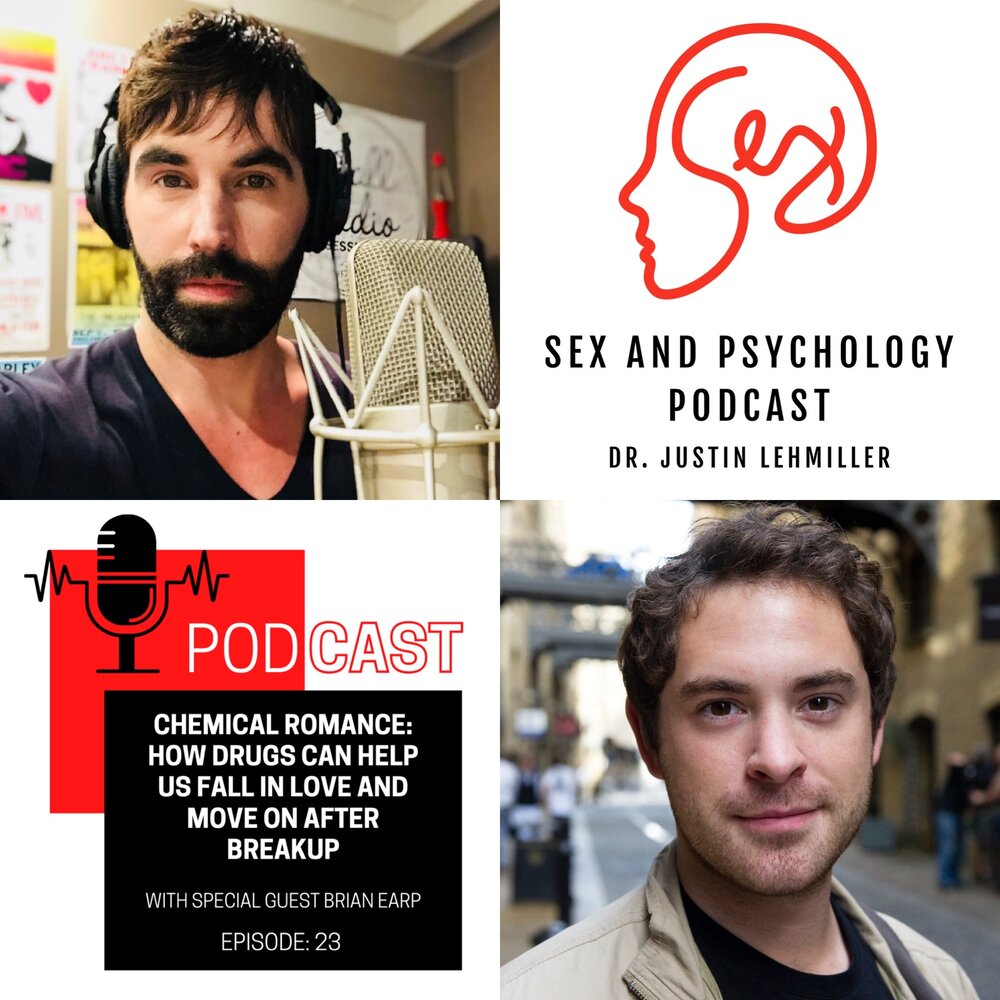[ad_1]
Imagine there was a drug you could take to enhance your relationship or deepen your connection with your partner. Or a drug that could get rid of romantic jealousy. Or a drug that could help you move on faster after a traumatic breakup. This isn’t science fiction—these drugs are out there, and they just might be the future of falling in and out of love.
For this episode of the Sex and Psychology Podcast, I interviewed Brian Earp, who is the Associate Director of the Yale-Hastings Program in Ethics and Health Policy at Yale University and The Hastings Center. He is also a Research Fellow in the Uehiro Centre for Practical Ethics at the University of Oxford and author of the incredible book Love Drugs: The Chemical Future of Relationships.
We has an absolutely fascinating discussion about love drugs (chemicals that enhance bonds between partners) and anti-love drugs (chemicals that break bonds), and all of the ethical and other implications of using medications to regulate our relationships and breakups. Questions we answer include:
-
What is love? And what is the biochemical basis for it?
-
How can MDMA (the active ingredient in ecstasy) help struggling partners? Could it (and should it) play a role in couple’s therapy?
-
What does jealousy have in common with obsessive-compulsive disorder (OCD)? And can common OCD treatments help people to get rid of pathological jealousy in relationships?
-
How do you maintain your authentic self if you’re using drugs to facilitate connections with a partner? Should you change yourself to fit your relationship, or change your relationship to fit you?
-
How can drugs help us to get over bad breakups? What are the implications of numbing ourselves to relationship trauma?
-
Can drugs help people who are in love with an abusive partner to break the bond and exit a toxic situation?
-
Should drugs be used to regulate “deviant” sexual desires and “hypersexual” behavior? Is this helpful or harmful?
-
Will drugs be used to impose a certain sexual or relationship morality on people? What are the ethical implications of all of this?
To learn more about Brian and his work, follow him on Twitter and be sure to pick up a copy of his new book, Love Drugs: The Chemical Future of Relationships.
To listen to the podcast, stream via the player underneath or subscribe on your favorite podcast platform. Happy listening!
You can also listen to my podcast and stream all episodes on Apple, Spotify, Google, or Amazon. Subscribe to automatically receive new episodes, and please rate and review the podcast!
Like what you see? To keep up with my latest videos and podcasts, please subscribe to my YouTube channel.
Want to learn more about Sex and Psychology? Click here for more from the blog or here to listen to the podcast. Follow Sex and Psychology on Facebook, Twitter (@JustinLehmiller), or Reddit to receive updates. You can also follow Dr. Lehmiller on YouTube and Instagram.
Credits:
Music – 123RF/timtaj
Photo: Brian Earp
[ad_2]
Article link
[recent_products limit=”4″ orderby=”rand”]




